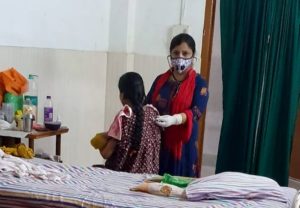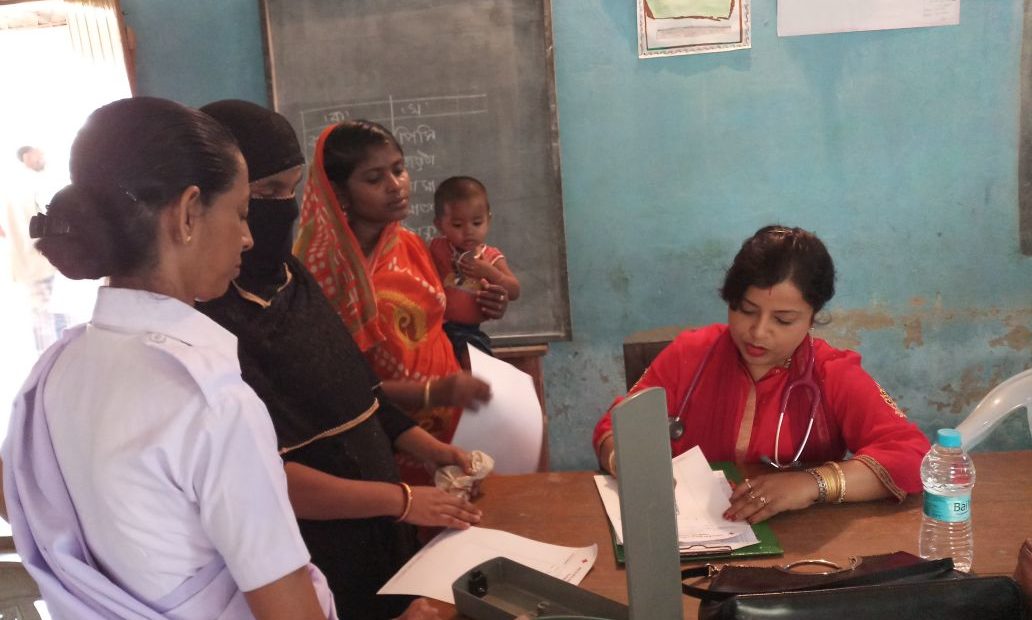The coronavirus has upended the healthcare system in so many ways, and it has presented specific challenges for women and reproductive health. There is still a significant amount of denial about the threats that this pandemic presents. Often, it is hard to explain to patients that coronavirus exists for real, and that it is not the affliction of a superpower which can be prevented and/or cured through occult practices.
There is overcrowding in hospitals, and patients with flu-like symptoms can give us a scare. And yet, in so many ways, as doctors, we serve as gatekeepers: ‘first in, last out’. As doctors we always stand at the forefront and it is our responsibility to treat patients who come to us, despite the potential risks. As the virus spreads, it is of increasing importance that doctors and healthcare workers protect themselves. The concept of viral load demands it. It is nearly impossible to tell who has been infected with COVID-19 until he or she starts showing symptoms and has been tested – this remains our biggest challenge.
We are also the ones who manage the aftermath of contingencies. COVID-19 outbreaks are bringing long-lasting consequences to both the physical and psychological health of patients and the community at large. The community and patients look up to us to provide treatment, supportive care and succour. And as doctors we are in the best position to offer guidance and counselling to patients and their families who do not feel stigmatised by seeking help from us.
The COVID-19 pandemic can be stressful for people. Fear and anxiety about a new disease and what could happen can be overwhelming and cause strong emotions in adults and children. Public health actions, such as social distancing, can make people feel isolated and lonely and can increase stress and anxiety. However, these actions are necessary to reduce the spread of COVID-19.
Coping with stress
For me, taking care of my friends and my family has been a stress reliever. But I have also balanced it with care for self. Helping others cope with their stress by providing support has also made my community stronger. During times of increased social distancing, I continue to maintain social connections and care for their mental health. Virtual communication (like phones or video chats) have helped me and my loved ones feel less lonely and isolated.
As doctors, it is imperative that we stay mentally strong and optimistic, both for our patients and ourselves, in these difficult times. While at the same time remaining equipped across the spectrum of prevention, preparedness, response and recovery for COVID-19. As Dr Tedros Adhanom Ghebreyesus, Director General of WHO, advocates, “This is the time for facts, not fear. This is the time for science, not rumours. This is the time for solidarity, not stigma.”
I have many competing duties: a duty to patients, a duty to protect myself from undue risk, a duty to my family, a duty to colleagues whose workload and risk will increase in my absence, and a duty to society. While my family members are sometimes apprehensive of my safety, they also understand my duties as a doctor and are very supportive of the same. Likewise, my neighbours, too, have been very supportive of me and my family in these trying times.

Dr Lala treats a patient at the Maternity and Child Welfare Centre, Karimganj District Branch in Assam. @IRCS
Preventive measures – first line of defence
The pandemic has taken an emotional toll on the country, but no one has been affected more than doctors and their families. This Doctor’s Day, my message to fellow doctors is that it is essential for those at the frontlines to continue to have access to emotional support and practical strategies to enhance coping mechanisms as they process their experiences with COVID-19.
COVID-19 serves as a reminder about the central role of clean water, good hygiene and sanitation. Until there is a vaccine or cure for COVID-19, prevention remains the only option. And even with a cure, prevention will always be the better option. Water, sanitation and hygiene, together with physical distancing and use of mask, are central to preventing the spread of this infection. It is this first line of defence that will protect us and our loved ones in these difficult times.
I have no doubt that, in the end, we will come out victorious.
Read more about the Red Cross COVID-19 response:
COVID-19: Red Cross Volunteers Rise to the Challenge
COVID-19: Unified Response with Indian Red Cross Volunteers’ Frontline Support


